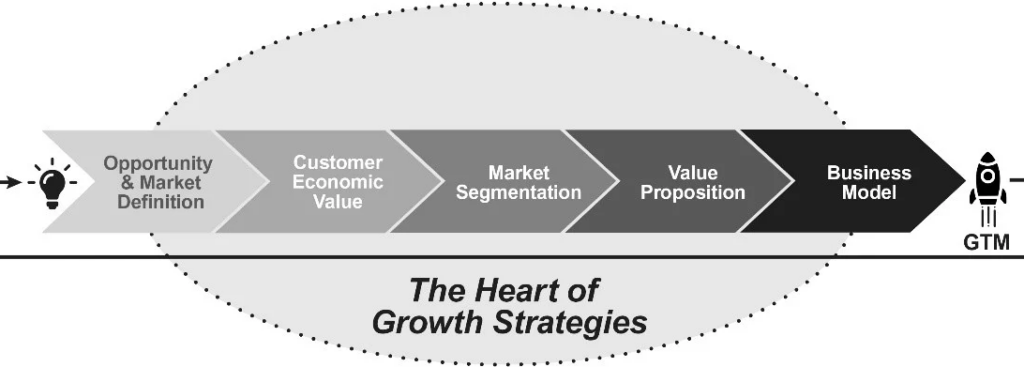When it comes to starting a business, the question of whether to start small or make a grand entrance is a crucial decision that every entrepreneur must consider. Both approaches have their own set of advantages and disadvantages, and the decision ultimately depends on various factors such as the industry, target market, financial resources, and risk tolerance. In this blog, we will explore the benefits and drawbacks of starting small versus making a grand entrance in the business world.
Starting Small: Testing the Waters

Starting small attracts a lot of entrepreneurs for a number of reasons. Lower initial investment requirements are one of the main advantages of starting small.
Entrepreneurs who start a small business can reduce their financial risk and evaluate the sustainability of their business idea without making a large initial investment.
This strategy provides greater flexibility and the opportunity to pivot or make changes based on early feedback and market factors.
Furthermore, starting small frequently enables a more customized and hands-on approach to business operations. Entrepreneurs can concentrate on developing trusting connections with clients, improving their goods and services in response to direct client input, and establishing a strong reputation in a particular industry or local market.
Using a grassroots strategy can result in organic growth and a devoted clientele, providing a solid basis for further growth.

On the other hand, there can be problems with scalability and visibility if you start small. While testing the waters on a small scale can be beneficial, it may limit the potential for rapid growth and market penetration. Additionally, competing with larger, more established businesses can be daunting for small-scale startups.
Making a Big Debut: Risks and Benefits of Strategy
On the other hand, making a big entry into the market might provide various strategic benefits.
A well-funded, prominent launch can attract a lot of interest from the media, investors, and potential clients by creating a lot of buzz and excitement.
This strategy can establish a new company as an industry leader from the start, perhaps leading to early market dominance and brand awareness.
Moreover, a bold entrance can convey ambition and confidence to rivals as well as clients. It can project a picture of dependability and stability, drawing prestigious collaborations and business ventures.
A grand entrance may build a strong brand identity and provide the target audience a sense of confidence and trust if it is executed with the appropriate PR and marketing methods.

Making a grand entrance though, usually calls for careful planning, precise execution, and a large financial outlay. There is a great deal of pressure to produce outstanding results right away, and because the firm is more visible than ever, mistakes or setbacks could be heightened. Furthermore, handling rapid development can come with its own set of difficulties when it comes to keeping up the initial momentum and exceeding high expectations.
Finding the Middle Ground: A Hybrid Approach
Ultimately, the decision of whether to start small or make a grand entrance is not always an either-or scenario. Many successful businesses have adopted a hybrid approach, combining elements of both strategies to achieve sustainable growth and long-term success. This approach may involve initially starting small to validate the business concept and then strategically scaling up with carefully planned expansion efforts.
By leveraging the benefits of a small-scale launch to gather invaluable market insights and customer feedback, businesses can then use this knowledge to fuel a more impactful grand entrance when the time is right. This approach allows for calculated risk-taking, informed decision-making, and the ability to adapt to changing market conditions while maximizing the potential for success.
In conclusion, there is no one-size-fits-all answer to the question of whether starting small or making a grand entrance is a better business model. The most suitable approach depends on the unique circumstances, goals, and resources of each entrepreneur. Both strategies have the potential to lead to success if executed thoughtfully and strategically. Ultimately, the key lies in aligning the chosen approach with a clear understanding of the market, a solid business model, and a relentless commitment to delivering value to customers.
The decision to start small or make a grand entrance is a defining moment for any entrepreneur, and it should be made after careful consideration of the potential risks and rewards associated with each approach. Whether it’s a gradual, organic growth or an explosive market entry, the journey of entrepreneurship is as much about the process as it is about the destination.
Just as the choice between starting small or aiming big is pivotal, so is the decision to pursue an MBA for professionals and aspiring entrepreneurs. Westford Uni Online offers a range of generic specialized Masters programs, providing valuable insights into industry-specific business acumen and managerial skills. These globally recognized degrees blend updated theoretical knowledge with practical skills, nurturing a transformative leadership journey.





